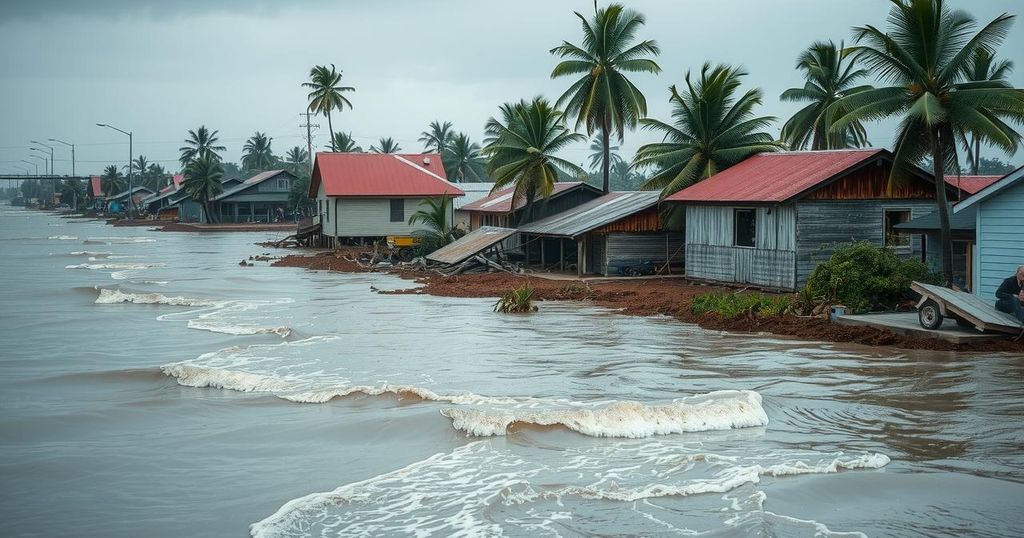World news
AFRICA, CABO DELGADO, DISASTER RELIEF, EMERGENCY RESPONSE, FLOODING, GOPI, ING, MAYOTTE, NATIONAL DISASTER RELIEF AGENCY, NATIONAL INSTITUTE FOR DISASTER RISK MANAGEMENT AND RED, NATIONAL INSTITUTE FOR DISASTER RISK MANAGEMENT AND REDUCTION, NATURAL DISASTER, NATURAL DISASTERS, NIASSA
Sofia Rodriguez
0 Comments
Cyclone Chido Devastates Northern Mozambique, Death Toll Reaches 120
Cyclone Chido has caused widespread devastation in northern Mozambique, with 120 confirmed deaths and 868 injuries reported. Over 680,000 individuals have been affected, including significant damage to homes and infrastructure. In response to the crisis, emergency shelters have been established, highlighting the urgent need for disaster resilience and support for the impacted communities.
Mozambique has been severely impacted by Cyclone Chido, which made landfall on December 15. The cyclone has resulted in a tragic death toll of 120 and left 868 individuals injured. The destruction has affected over 680,000 people across the northern provinces of Cabo Delgado, Nampula, and Niassa. Reports from Mozambique’s national disaster relief agency reveal that more than 123,000 families—approximately 622,610 individuals—have experienced the devastation first-hand, with significant damage to infrastructure including over 140,000 homes, 250 schools, and 89 public buildings. The national disaster relief agency has reported that approximately 110,000 students are among those affected by this calamity.
In the aftermath of the cyclone, two emergency shelters have been established to accommodate displaced individuals, currently housing 1,349 people. The National Institute for Disaster Risk Management and Reduction (INGD) has highlighted the critical impact of this storm on social infrastructure, particularly in education and health sectors. In a statement posted on social media, the INGD remarked, “The Cyclone Chido once again highlights the vulnerability of social infrastructure to climate change and the need for resilient planning to mitigate future impacts.”
Cyclone Chido emerged from the southwestern Indian Ocean on December 5, wreaking havoc in Mayotte before reaching Mozambique. As authorities and international humanitarian organizations continue to seek support for the affected communities, the cyclone serves as a stark reminder of the urgent need for disaster preparedness and infrastructure resilience against climate-related events.
Cyclone Chido is categorized as a tropical cyclone that originated over the southwestern Indian Ocean, gaining strength and causing destruction after making landfall in northern Mozambique. Tropical cyclones can create significant damage due to their strong winds, heavy rainfall, and resultant flooding. Mozambique, a region vulnerable to climatic events, has faced numerous natural disasters over the years. The onset of Cyclone Chido, particularly after impacting other territories, highlights the need for enhanced planning and building infrastructure that could withstand such severe weather conditions, a recurring theme in climate change discussions worldwide.
The aftermath of Cyclone Chido in Mozambique illustrates the immense toll natural disasters can exert on communities, with a death toll rising to 120 and significant infrastructure damage. With over 680,000 people affected and substantial impacts on education and health sectors, the response underscores the importance of resilient planning in the face of climate change. As the government continues to establish emergency shelters and appeal for assistance, the plight of the affected communities remains a pressing issue warranting attention.
Original Source: www.socialnews.xyz




Post Comment